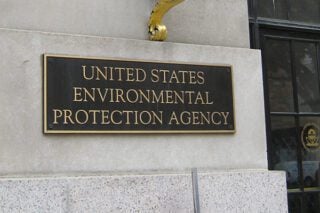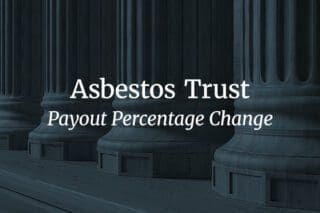
Despite federal restrictions, many older homes built before 1980 contain asbestos. Federal asbestos laws limit the use of the mineral in construction materials and manufacturing practices. However, these regulations do not address asbestos products already installed in homes. Many homeowners and contractors are still at risk of asbestos exposure.
Recognizing this health risk, New Jersey state lawmakers are considering an asbestos removal bill. If passed, the bill would allow homeowners to deduct money from their gross income tax to pay for the removal of hazardous materials in the home. This bill allows for the removal of lead paint, lead pipes and asbestos products.
New Jersey Bill Encourages Professional Asbestos Removal
In January 2021, lawmakers introduced New Jersey Assembly Bill 1841 (A1841). A1841 helps homeowners remove hazardous materials from their properties. The bill specifically targets the high cost of removing asbestos and lead materials in homes.
When disturbed, these materials can lead to serious health consequences for homeowners and renovators. For example, exposure to asbestos can lead to several types of cancer, including mesothelioma. Thus, asbestos removal should be handled by abatement professionals. However, due to the risks involved, these removal services can be expensive.
“Exposure to asbestos has been linked to lung cancer and other serious conditions. This bill will help eradicate these silent threats from our communities.”
– Senator Christopher “Kip” Bateman, MyCentralJersey.com
Through a tax deduction, A1841 helps homeowners cover the cost of professional asbestos or lead removal. This bill aims to protect homeowners from possible exposure from living around these materials or removing the materials themselves.
A1841 Offers Homeowners a Tax Deduction
If passed, A1841 would allow homeowners to deduct up to $25,000 from their gross income tax. For homeowners to receive the deduction, they must pay for one of the following:
- Removal of asbestos materials
- Removal of lead pipes
- Removal of lead paint
- Replacement of water service line that contains lead
However, to claim the deduction, the removal must be completed by a state-licensed professional. Taxpayers must then submit receipts of the professional service to claim the deduction.
“For the health of residents, it is crucial to mitigate the risks of lead and asbestos in the home, but hazard abatement is costly. This bill will make it easier for homeowners to do the right thing and have trained professionals remediate toxins and carcinogens from their property ensuring a healthy environment for current and future residents of the property.”
– Senator Christopher “Kip” Bateman, MyCentralJersey.com
Senate Environment and Energy Committee Clears A1841
In March 2021, A1841 passed in the Assembly 73–0. On June 15, 2021, the bill cleared the Senate Environment and Energy Committee. The committee will report on any amendments before the bill goes to the full Senate for a vote. If passed, this bill could protect many New Jersey residents from the dangers of asbestos and lead.
Asbestos in Residential Homes
Asbestos is a naturally occurring mineral that is strong, fireproof and resistant to extreme conditions such as heat. Because of these qualities, asbestos has long been used as an additive in residential and commercial construction materials.
The federal government did not begin regulating asbestos use until the 1970s. Even today, the United States has not fully banned the use of asbestos. Thus, asbestos can be found in many older homes. Some products used in new homes may also contain small amounts of asbestos, including certain types of insulation.
This can be a serious problem for homeowners. But, it can often be a bigger risk for construction workers who renovate older homes and buildings. Construction workers have a high risk of occupational asbestos exposure.
New Jersey’s asbestos removal bill encourages homeowners to hire removal professionals. These professionals are trained to properly and safely handle the material. In doing so, this bill not only protects homeowners but also contractors and construction workers who may otherwise be exposed.




